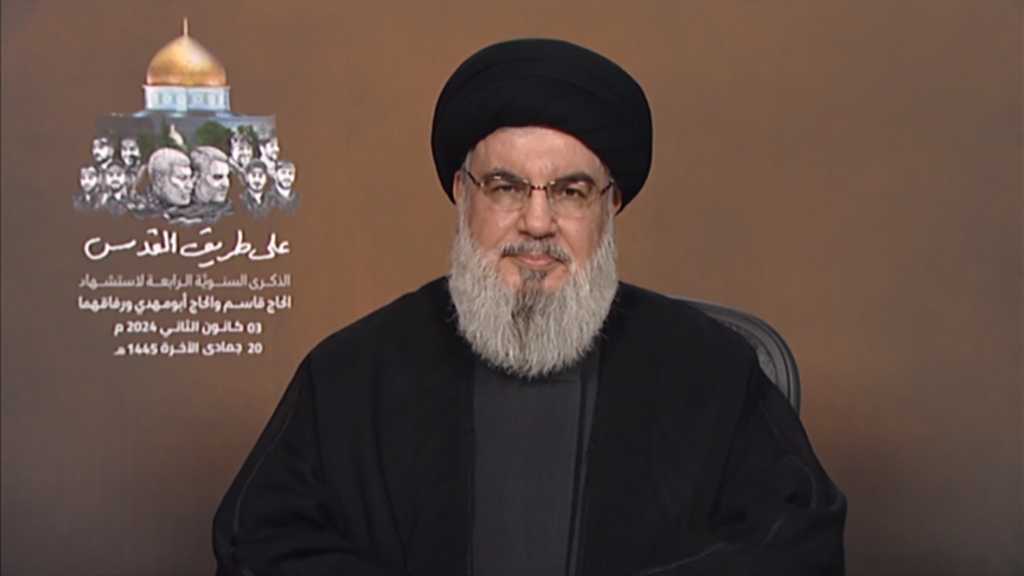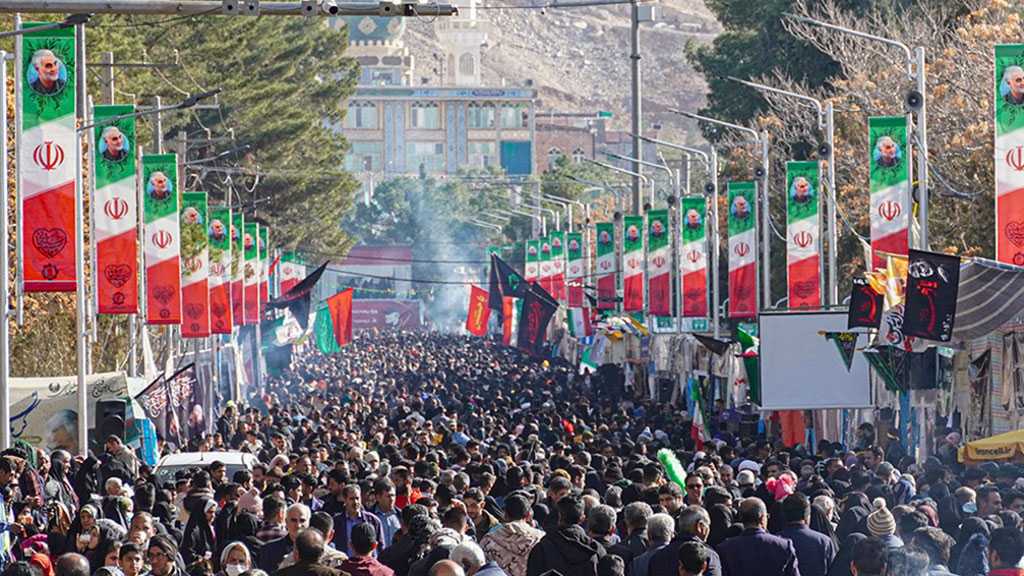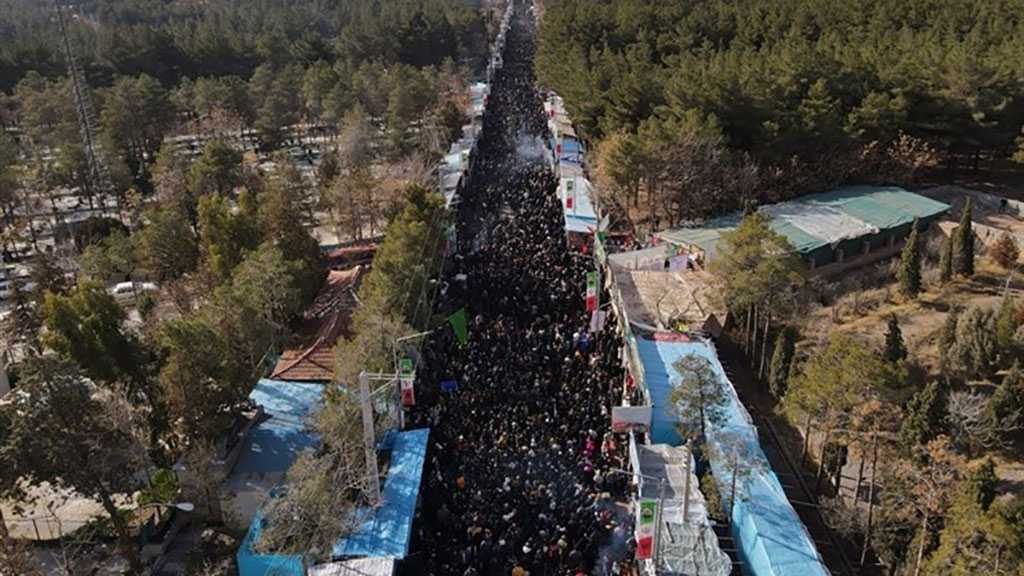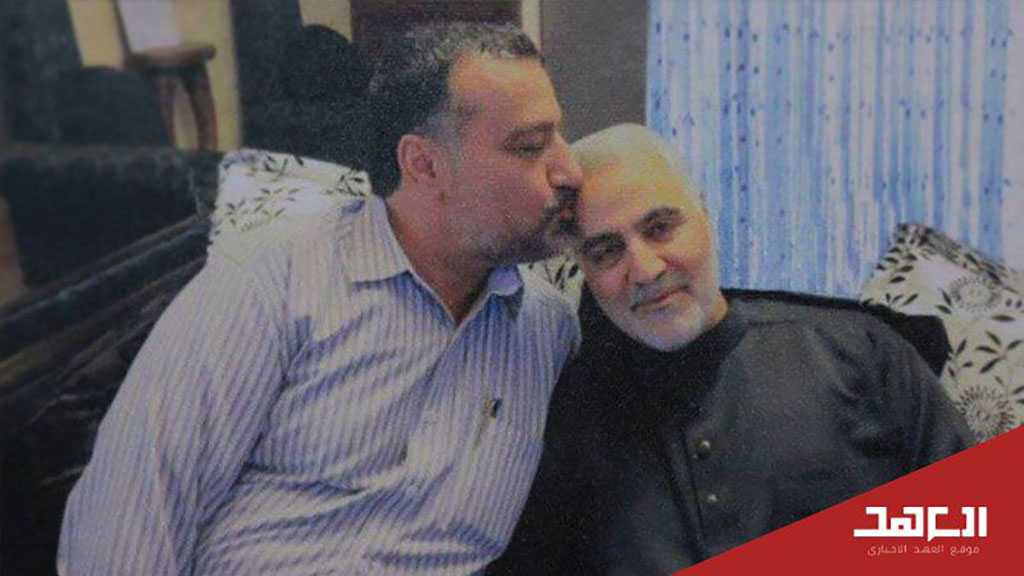
Iranian President’s Chief of Staff to Al-Ahed: Soleimani’s Martyrdom Broke His Killers’ Backbone
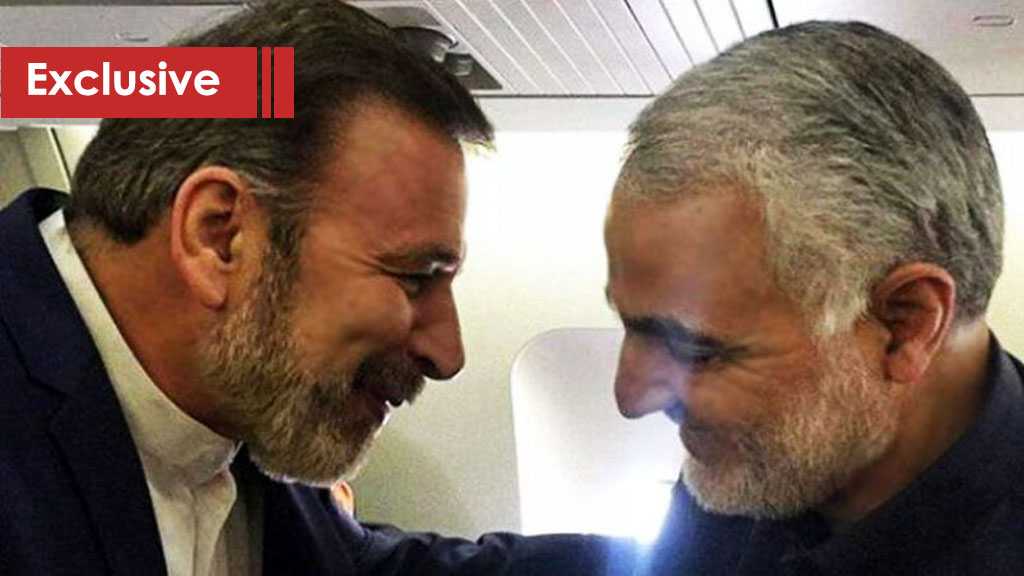
By Mokhtar Haddad
Tehran - On the occasion of the first martyrdom anniversary of General Hajj Qassem Soleimani, Al-Ahed News spoke with Dr. Mahmoud Vaezi, the Chief of Staff of Iran’s President.
Dr. Vaezi asserted that this martyrdom “broke the backbone and domination of his fake and weak killers.”
"The Trump administration viewed commander Soleimani as a major obstacle to its subversive and escalatory policies in the region, and that is why it assassinated him in this shameful and criminal way."
In his interview with Al-Ahed, Vaezi pointed out that "the main response to this crime is the full withdrawal of the US from the region. Our basic strategy in the region, which we always made known to neighboring states, is for those countries to ensure security for this region and confront foreign interference. The Hormuz peace plan announced by President Rouhani at the United Nations remains on the table, and we believe that it will be achieved with the help of regional states. We believe that through regional cooperation we can establish peace and stability, and there is no need for foreigners to be present in the region."
Below is the full transcript of the interview:
On the first martyrdom anniversary of Hajj Qassem Soleimani and his companions, the US claims that it has broken Iran's backbone. What is your response?
In our Islamic teachings, we believe that the blood of the martyr is a stain on the oppressors. During his lifetime, martyr General Soleimani was the source of great deeds for the country, the Axis of Resistance, and the region. His martyrdom led to rapprochement and solidarity between the peoples of the region against America.
In fact, we believe that his martyrdom broke the backbone and dominance of his fake and weak killers. When a country that claims to be a superpower in the world assassinates our military commander in such a treacherous and cowardice manner during an official diplomatic tour, it means that first, you were not a worthy opponent, and second, you are against his legacy.
The legacy of martyr Soleimani is clearly evident today, not only in the region, but in the whole world, especially since he was the first enemy of the terrorists who turned the world into an insecure place. There were many terrorist incidents carried out by Daesh in the West, including Brussels, London, Manchester, and other European cities. The defeat of Daesh is the best evidence that martyr Hajj Qassem Soleimani made the region and the world safer.
Martyr General Qassem Soleimani poured all his energy into confronting American conspiracies. How did he achieve this success and manage to counter America’s arrogant mood?
The greatest proof of the success of this great martyr in confronting arrogant American plots and thwarting its plans in the region, is his assassination by the Trump administration. It is clear that the Trump administration considered him a major obstacle to its subversive and escalatory policies in the region, which is why they assassinated him in this shameful and criminal way.
Martyr Soleimani sought to eliminate terrorism in the region. This great martyr was able to form a strong regional alliance against criminal terrorists in Iraq and Syria, and he helped the peoples of the region during difficult days in confronting Daesh and other terrorist groups.
Hajj Qassem was not only a man from the battlefield, but he was also a seasoned diplomat who combined courage and wisdom. His courage was rooted in his faith and belief. His wisdom was rooted in the knowledge and experience he had acquired during decades of pursuing the path of God.
His unique role was personified through his fight against terrorism, taking into consideration and with full respect for the national sovereignty of the countries concerned. So, based on an official request from the governments of Iraq and Syria, he helped them confront terrorism. This is why he was very popular in the countries of the region. Lieutenant General Soleimani is the pride of Iran, but we do not consider that he belongs to us alone. His departure was a tragedy for all Muslims. Even outside the Islamic world, he served humanity, regardless of nationality, religion, or ethnicity, by playing a major role in defeating Daesh and creating security and stability.
After Hajj Qassem's martyrdom, Imam Khamenei declared that the main goal was to get US forces out of West Asia. A year after his martyrdom, what is America's influence in the region?
This is not only a statement by the great leader of the revolution, but we believe it is a divine promise. As I said, we believe that the blood of the martyr is a stain on the oppressors and a starting point for their demise, as America's power has declined today in the world and not only in West Asia. There are numerous clues that are being unveiled if we had time to delve into this topic. In our region, the influence and status of America has declined more than ever, and the martyrdom of Soleimani must have played an important role in this process.
How will the response to this crime be completed, especially since there is an emphasis on the need for an American withdrawal from the region?
In terms of the military response, you definitely know that the Islamic Republic of Iran poured missiles down on the American base involved in the assassination of martyr Soleimani. This targeted attack sent a clear message to the Americans that attacking the Islamic Republic of Iran and crossing its red lines will certainly not pass without a response.
However, as mentioned earlier, we view the main response to this crime as paving the way for a complete US withdrawal from the region. Our basic strategy in the region, which we always made known to neighboring states, is for those countries to ensure security for this region and confront foreign interference. The Hormuz peace plan announced by President Rouhani at the United Nations remains on the table, and we believe that it will be achieved with the help of regional states. We believe that through regional cooperation, we can establish peace and stability, and there is no need for foreigners to be present in the region. The presence of foreigners in the region has so far caused nothing but destruction and wars. We have always adopted this strategy, and after the martyrdom of Soleimani, we became more determined to achieve it.
What was martyr Soleimani's role in confronting terrorism and in supporting and consolidating the axis of resistance?
His role in combating terrorism and supporting the peoples of the region in confronting terrorist groups was very clear. When the terrorists occupied two-thirds of Syrian territory, the siege they imposed was so severe that we witnessed bombings and terrorist operations near Damascus and near Syrian government institutions. The situation in Iraq was very similar to that of Syria, where Daesh occupied most of the country, and the level of insecurity peaked.
The images of the crimes committed by terrorists in these two countries, and of course in other parts of the world, have not yet been erased from the memory of the countries of the region. Whoever wants to realize the role of the Islamic Republic of Iran and martyr Qassem Soleimani in the region, must compare the images during those days when terrorism dominated the region with the situation today. The defeat of Daesh was the peak of the resistance in the region, and this would not have been possible without martyr General Soleimani and his field command.
On the martyrdom anniversary of Hajj Qassem, I would like to mention his comrade, the great martyr and Mujahid Hajj Abu Mahdi al-Muhandis, one of the most prominent symbols of the resistance and one of the main leaders in the war against terrorism in Iraq. His name will remain immortal throughout history.
By assassinating Hajj Qassem, did America manage to stop his march or has the axis of resistance become stronger?
Martyr Soleimani’s path was that of resistance, facing arrogance, and jihad for the sake of God. Our religion taught us that this path does not stop at martyrdom. In Islam, we do not believe that martyrdom is a conclusion or an end, for martyrdom makes the path to the truth stronger, more dynamic, and higher. Although Hajj Qassem Soleimani was a hero in fighting terrorism and opposing arrogance, his martyrdom does not mean weakening the axis of resistance. Ironically, thanks to his pure blood, the peoples of the region woke up today, and the axis of resistance has become stronger than ever.
What was Hajj Qassem's relationship and cooperation with the government of Iran like?
Foreign Minister Dr. Zarif provided a complete overview of this, which was recently published in various media outlets. It should be noted that in matters related to national security, national interests, and strategic issues such as foreign policy and regional policies, there was complete complementarity between all pillars of the Islamic Republic.
Martyr Soleimani's operational range was one of those cases around which there was and still is a complete rapprochement in our country. In the government of the Islamic Republic of Iran, we have always considered diplomacy and defensive force as the two main wings of the country, and we have never separated these two wings or allowed either of them to weaken.
Accordingly, commander Soleimani had a very close relationship with the government of the Islamic Republic and the president himself.
Regarding foreign policy issues, regular weekly meetings were held with the Minister of Foreign Affairs. This rapprochement and coordination were not based on individuals alone, but it is a ruling strategy in the Islamic Republic of Iran.
